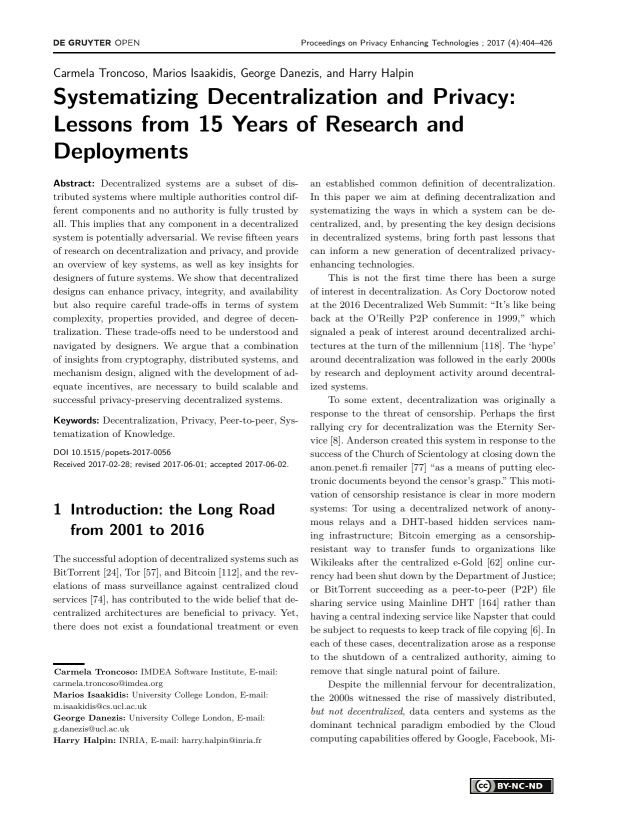Systematizing Decentralization and Privacy: Lessons from 15 Years of Research and Deployments
Authors: Carmela Troncoso (IMDEA Software Institute), Marios Isaakidis (University College London), George Danezis (University College London), Harry Halpin (INRIA)
Volume: 2017
Issue: 4
Pages: 404–426
DOI: https://doi.org/10.1515/popets-2017-0056
Abstract: Decentralized systems are a subset of distributed systems where multiple authorities control different components and no authority is fully trusted by all. This implies that any component in a decentralized system is potentially adversarial. We revise fifteen years of research on decentralization and privacy, and provide an overview of key systems, as well as key insights for designers of future systems. We show that decentralized designs can enhance privacy, integrity, and availability but also require careful trade-offs in terms of system complexity, properties provided, and degree of decentralization. These trade-offs need to be understood and navigated by designers. We argue that a combination of insights from cryptography, distributed systems, and mechanism design, aligned with the development of adequate incentives, are necessary to build scalable and successful privacy-preserving decentralized systems.
Keywords: Decentralization, Privacy, Peer-to-peer, Systematization of Knowledge.
Copyright in PoPETs articles are held by their authors. This article is published under a Creative Commons Attribution-NonCommercial-NoDerivs 3.0 license.

